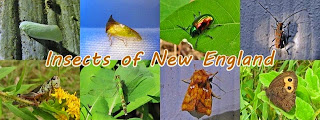The internet has made the scientific community vastly more accessible to the general public, but social media has taken that to yet another level. Whereas it once took hours, if not days, of research to get an answer to a question, or the identification of an organism in an image, success can now be had in minutes. Facebook in particular has exploded with specialized "groups."
No matter how offbeat your entomological interest there is no doubt a Facebook group devoted to it. Are you a moth fanatic? Ha, so are over 3,300 other people who have already joined the "Mothing and Moth-watching" group.
You might worry that the membership represents a "blind leading the blind" assortment of amateurs or newbies, but most of the time there are plenty of professional entomologists and experienced citizen scientists offering help, sharing announcements of new research, or simply posting stunning images. Take the "Hymenopterists Forum," for example. I have queried this group a number of times with images of wasps, bees, or ants that I was having trouble identifying. I am always met with courtesy and respect, though I am careful not to post too much, too often.
Are your interests regional in nature? New groups continue to sprout which are regionally-centered geographically. I know because I have started four of them myself. Maybe you want to know more about dragonflies and damselflies of the southeast U.S. Voila! "Southeastern Odes" is at your service.
One of the most wonderful aspects of Facebook groups is that they usually have a global membership, and you can always stand to learn from others in far-flung locations around the world. The "Friends of Coleoptera at the Natural History Museum" group reflects beetle experts at the museum in London, England, for example, but they are incredibly friendly to everyone, and highly knowledgeable of beetles from all over the planet.
Still can't find a group that suits you? The answer is easy: create your own. Facebook makes the process of founding a group very easy and relatively intuitive. Do pay attention to the settings ("public," "closed," "secret"), and be mindful that as an administrator you will need to be vigilant to welcome new members, delete spam and its originators, and post regularly to keep your group on the Facebook radar.
I had to be metaphorically dragged into social media back in 2009, but I could not be more grateful to those who nudged (pushed?) me into it. Through Facebook I have made many new friends in the truest sense, learned more than I could have imagined, and helped others. I highly recommend taking full advantage of social media avenues in your own pursuits.





Why do you think that Facebook is starting to take over from forums for such interest groups? Personally, I like to go to specific forums to discuss my interests, and I am not keen on Facebook, preferring not to know what my friends are having for tea, or what they were up to last night!!
ReplyDeleteFair question, and Facebook is certainly not for everyone....I think the convenience of having a one-stop site for every facet of one's interests is very appealing. Instant gratification is a powerful motivator, for better or worse. Personally, I like the fact I can log in *once* for a variety of interest groups, rather than have to remember or look up individual passwords for each forum or website.
Delete